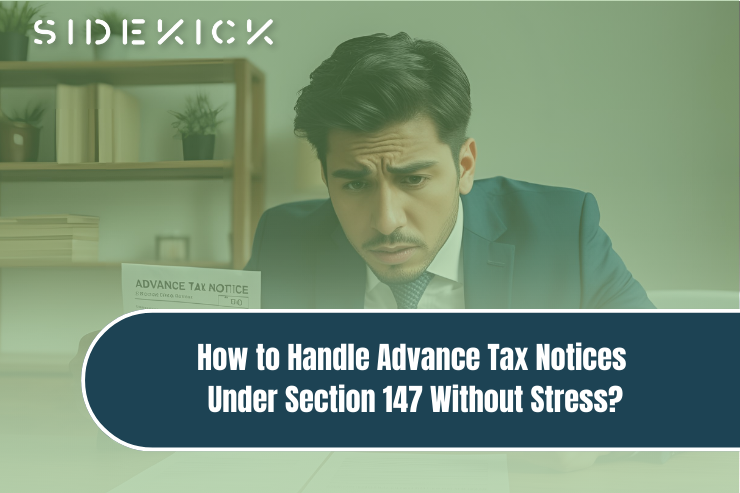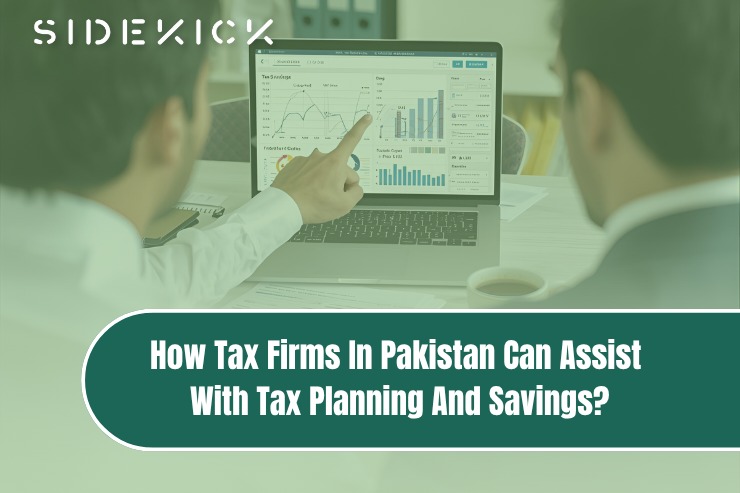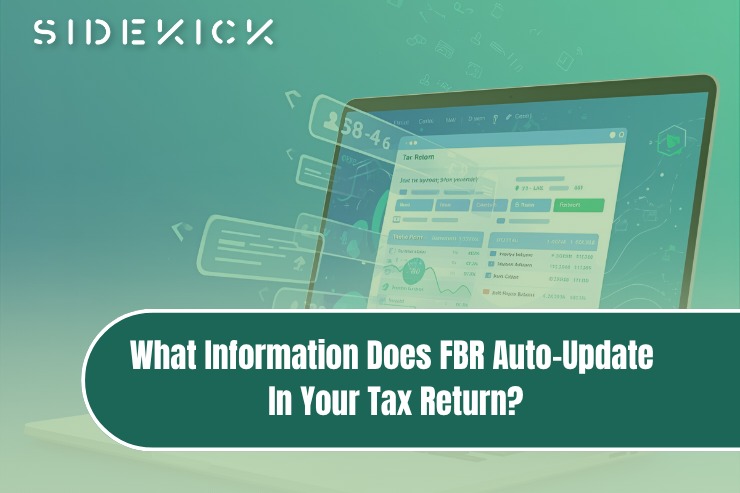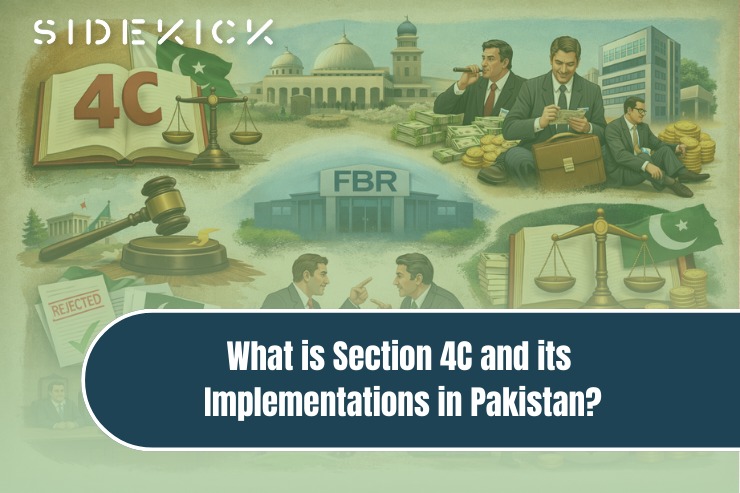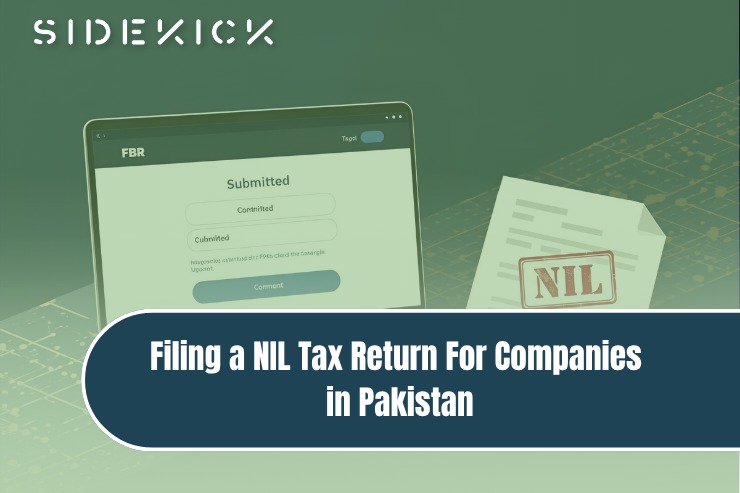Taxpayers in Pakistan may find the situation of getting an Advance tax notice under Section 147 issued by the Federal Board of Revenue (FBR) overwhelming. Upon receiving such notices, many business owners and salaried people become nervous about legal entanglements or high costs. Nevertheless, being able to handle this notice properly can prevent you from unwarranted stress and penalties.
In this article, we will explain everything you need to know about Section 147, its alleged implications, and how to respond to a notice without stress.
Understanding Section 147 of the Income Tax Ordinance 2001
Section 147 of the Income Tax Ordinance, 2001, governs advance tax payments in Pakistan. This law requires certain taxpayers to pay tax in advance on their estimated taxable income for the year.
Who is Required to Pay Advance Tax?
If you come under any of these, you may or will receive an advance tax notice under Section 147.
- Business Owners & Self-Employed Individuals -If the latest assessed income tax liability exceeds Rs. 1,000,000.
- Salaried Individual with Additional Income – If you have additional income (outside of salary) from rental income, business, professional, or other business.
- Businesses & Partnerships – Businesses with taxable income have to pay quarterly advance tax payments.
- Importers, Exporters, and Contractors – There are certain professionals and certain industries that have advanced tax obligations.
Why Do You Receive an Advance Tax Notice?
If you get an advance tax notice, it means the FBR has taxed your anticipated income and believes you need to pay tax in installments throughout the year. This is official information from the tax authorities about their need for compliance.
The following are the reasons why an advance tax notice is issued to you:
- You fall under the advance tax slab.
- You paid more than Rs. 1,000,000 in tax for the previous year.
- The revenue in your business has multiplied significantly.
- You have a steady tax liability as a company owner.
- You have not paid the last tax advance.
Worried about a Section 147 notice?
Get in Touch
Fill out the form below, and we will be in touch shortly.
Step-by-Step Guide to Handling an Advance Tax Notice Without Stress
Step 1: Read the Notice Carefully
- It will contain a notice as to the amount of tax due and the date on which it is payable.
- The reason for the advance tax demand will be stated.
- Secondly, you can verify whether the calculation is correct relative to your expected income.
Step 2: Verify Your Tax Liability
- Find out how much it would be from taxable income this year.
- Check whether the advance tax demand is justified.
- If the estimated income is not appropriate, you may contest the calculation.
Step 3: Respond to the Notice
If you agree with the tax calculation.
- In case of penalties, pay the advance tax before the due date.
- FBR’s online portal, ATM, or authorised bank branches are available to make payments.
If you disagree with the tax calculation:
- Write to the Commissioner of Inland Revenue.
- Give copies of required financial records and tax documents.
- Subsequently, a revision of the tax demand must be requested.
Step 4: Calculate Your Quarterly Advance Tax Installments
Under Section 147 on advance tax, it has been made payable in 4 equal quarterly installments.
- First Quarter: September 25 (For companies) / September 15 (For other taxpayers)
- Second Quarter: December 25
- Third Quarter: March 25
- Fourth Quarter: June 15
If you have already made advance payments, apply them against the present demand.
Step 5: Claim Exemptions or Adjustments
There are certain permissible exemptions and permissible adjustments.
- Advance tax will be adjusted in case of paying withholding tax.
- If you earned less than estimated, you can apply for a revision.
- If you ever know about qualifying for any tax exemptions, then inform FBR along with the supporting document.
Step 6: Seek Professional Tax Advice
If you don’t know what to say:
- It’s advisable to consult a chartered accountant (CA) or any tax consultant like Sidekick.
- If FBR does not agree, make an effort to consult for their input and seek legal advice.
- However, professional guidance can also help to reduce errors and the opportunities for penalties.
Step 7: Avoid Late Payment Penalties
Coming under the Advance tax notice will lead to the following:
- Late payment surcharge and penalties.
- Audit and legal proceedings from the FBR.
- The additional financial burden is due to interest charges.
To avoid penalties:
- Pay the advance tax on time.
- Make proper documentation for future reference.
- Prevention is better than cure; hence, ensuring compliance will prevent any legal complications.
Common Mistakes to Avoid When Handling Advance Tax Notices
- Ignoring the Notice –This can lead to penalties and legal action.
- Paying without verification – Always check the amount being demanded to ensure accuracy.
- Missing Payment Deadlines – Late payments can lead to penalties of up to 12% per annum.
- Not seeking professional help – A tax consultant helps save money and facilitate compliance.
- Assuming Advance Tax is a Final Tax – Advance tax is an adjustment against your final tax liability.
Stay Compliant & Stress-Free with Sidekick – Your Partner in Tax & Payroll Management!
Tensed with an Advance Tax Notice under section 147? Sidekick helps you to take care of your payroll processes and tax compliance without stress at the minimum cost to help you stay ahead of deadlines.
We provide automated tax calculation, payroll management, and compliance solutions to help businesses and professionals in Pakistan efficiently manage their advanced tax obligations. Sidekick has you covered: It offers accurate tax deductions, secure quarterly payments, and excellent tax advice.
Final Thoughts: Stay Proactive & Organized
There is no need to be stressed out at the handling of an Advance Tax Notice under Section 147. If you understand the legal requirements, check the tax calculations, and respond quickly, you will comply without putting a strain on the company’s finances.

